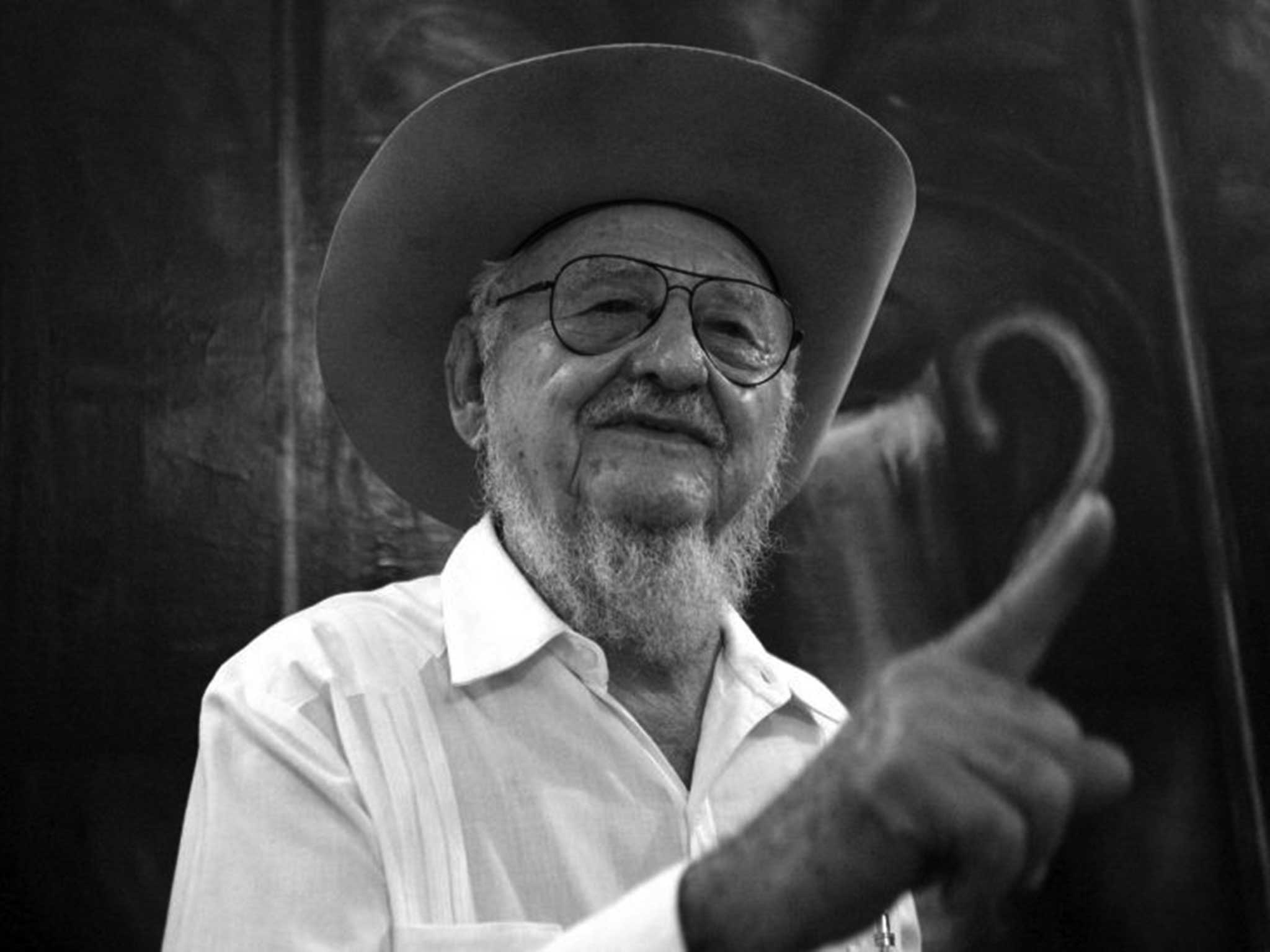Ramon Castro: Older brother of former Cuban dictator, who chose cattle and sugar cane over revolutionary fervour
Ramon Castro was in most ways the opposite of his little brother, Fidel

Your support helps us to tell the story
From reproductive rights to climate change to Big Tech, The Independent is on the ground when the story is developing. Whether it's investigating the financials of Elon Musk's pro-Trump PAC or producing our latest documentary, 'The A Word', which shines a light on the American women fighting for reproductive rights, we know how important it is to parse out the facts from the messaging.
At such a critical moment in US history, we need reporters on the ground. Your donation allows us to keep sending journalists to speak to both sides of the story.
The Independent is trusted by Americans across the entire political spectrum. And unlike many other quality news outlets, we choose not to lock Americans out of our reporting and analysis with paywalls. We believe quality journalism should be available to everyone, paid for by those who can afford it.
Your support makes all the difference.Ramon Castro's death might have gone unnoticed in the world, even in his native Cuba, had his little brother Fidel not become one of the most famous, most admired but at the same time most disdained men in modern history. Fidel would no doubt say that a simple farmer, as his big brother was, deserves the same recognition as a prince or president. That is an honourable ideal which the decades-long Cuban leader had some trouble living up to, as shown by the hundreds of thousands who fled, or tried to flee, his Caribbean island's Soviet-style "lock-in".
Ramon Castro, who has died aged 91, two years older than Fidel, was in most ways the opposite of his brother. He was happy to tend his horses, cattle, sugar cane and orange groves regardless of whether a US puppet dictator or his own Marxist brother was in power. Not for Ramon to put the world to rights or get involved in the killing of human beings that revolutions by nature entail.
And unlike Fidel, Ramon wasn't one to go out much. For one thing, passing Habaneros (Havana city folks) and tourists would inevitably take a snap of him because he was a bearded, cigar-chomping dead-ringer for his younger brother. And that resemblance could have cost him his life during the decades when Fidel was Public Enemy #1 for the CIA, who are said to have tried to kill the Cuban leader dozens of times.
When passing strangers confronted Ramon with "Comandante?" or "Fidel?" he would reply: "No, soy Mongo, pero sí, el Comandante me parece un montón [No, I'm Mongo, but you're right, the Commander does look a lot like me]." Mongo, probably a children's jokey reference to Mongolia in Cuba's multi-ethnic society, was his nickname from childhood. People often took his photo anyway, sometimes passing them off as pictures of Fidel to impress their friends. Not a few foreign journalists made the same mistake, or used the same misunderstanding in their favour without confessing to their editors.
Ramon Castro Ruz was born on the family finca (large farm and plantation) in Biran, eastern Cuba, in 1924, to Angel Castro, a successful immigrant cattle farmer from Galicia at the north-western tip of Spain, and his second wife, Lina Ruz. When Ramon was born, he already had two siblings from his father's first marriage. The Castros were a Catholic family, as yet unmoved by the communist revolution in imperial Russia which many years later would motivate Fidel to make a stand against his island's figurative "big brother" – the US, as close to Cuba as Birmingham is to London.
Ramon became a member of the communist party and supported his younger brother discreetly when Fidel plotted his revolution in Mexico and sailed back to Cuba in the famous, overloaded family cruise boat Granma with his younger brother Raul and a young Argentinian junior doctor called Ernest Guevara. As with most Argentinians, Guevara became known as "Che", or "buddy".
One of the few foreigners to "find" Ramon, although he wasn't exactly in hiding, was the journalist Sally Quinn, who wrote a somewhat drooling but informative article in the Washington Post in 1977: "Physically, he is stunningly like his brother Fidel, an enormous, heavy-set, gruff bear of a man, with a scraggly beard, a red face, a blustery manner, a ready teasing smile and bright dancing eyes." At the time, American tourists had difficulty getting to Cuba but that article about Ramon set the switchboards of American travel agents alight, especially from women of a certain age.
While Fidel was in Mexico City, downing coffee and rum with Raul and Guevara, Ramon helped them quietly with money and propaganda while still longing to retain the peaceful life on his farm. He sent his brothers cigars when they were in jail during their first insurrections before the revolution.
Following the revolution, Ramon often worked as a consultant for the government ministries of agriculture and sugar. In the early 1960s he oversaw sugar production in eastern Cuba, where he helped increase output. He founded several state companies, including ones that handled sugar cane transportation and orange production. Though he wielded little power, he was a founding member of the Communist Party of Cuba and served as a deputy in the country's parliament, the National Assembly.
Although Fidel gave up smoking cigars in the mid-1980s, Ramon maintained the habit. "Is it true that he never smoked again?" he asked in 2002, during an international cigar festival, about his younger brother's former love of the island's fabled product. "As for me, I haven't given it up."
Ramon Castro Ruz, farmer: born Biran, Cuba 14 October 1924; twice married (children); died Havana 23 February 2016.
Join our commenting forum
Join thought-provoking conversations, follow other Independent readers and see their replies
Comments